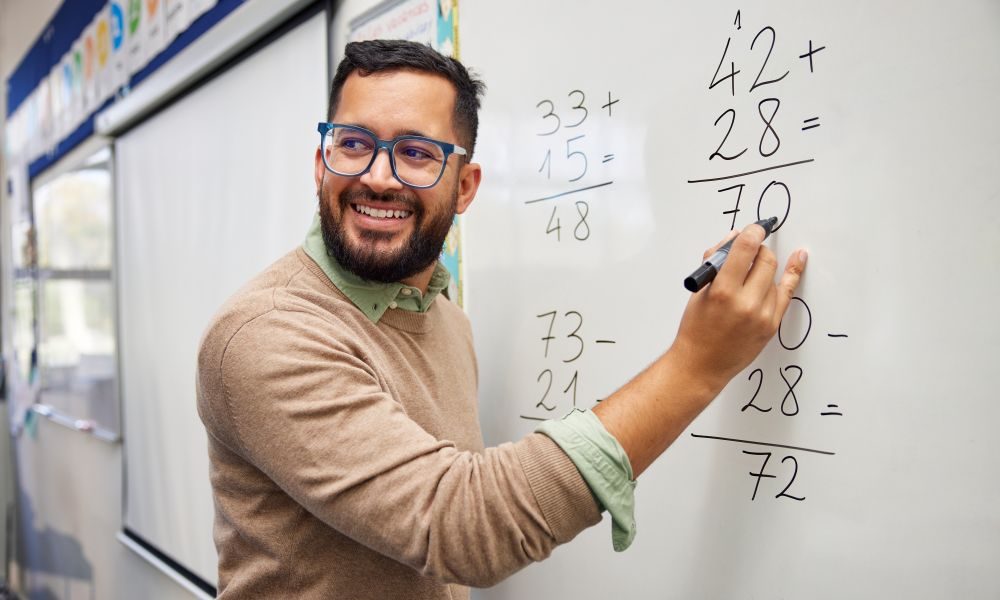Welcome to this edition of Researching education: Five further readings. In this series, we take a look at some further readings available on a particular topic, including open access research papers from various online catalogues, and Teacher archive content you might not have come across yet.
If you've been keeping up with the latest coverage at Teacher, you'll know we've been sharing insights from the Programme for International Student Assessment (PISA) 2022 cycle, which focused on mathematics. In this edition of Researching education: Five further readings, we’re sharing resources on mathematics education in primary and secondary, including on teaching finance, mathematics anxiety, and more.
- Facing up to maths anxiety: How it affects achievement and what can be done about it. In this Analysis Paper published by the Centre for Independent Studies, you can read about the prevalence of mathematics anxiety, its association with mathematical development and gender differences in the area. The author, David C. Geary, is a Curators’ Distinguished Professor in the Department of Psychological Sciences and Interdisciplinary Neuroscience Program at the University of Missouri.
- Mawng maths: Collaborating to teach mathematics in an Australian Indigenous language. This open-access paper reports on a collaborative program involving a non-Indigenous researcher and a Mawng educator reintroducing mathematics lessons in Mawng language at Warruwi Community School. ‘Developing a program that is participatory and collaborative takes time and willingness for the program to develop its own shape and direction rather than being pre-planned by an external researcher. The result is a program that belongs to the community, is sustained by the community and reflects the values and desires of the community,’ the paper reads.
- Economics + Maths = Financial capability Research report. Here, you can read about the findings of the Economics + Maths = Financial capability project which explored how opportunities for teaching and learning about finance are framed within the Australian Curriculum.
If you’d like to find out more, 2 of the paper’s authors – Dr Carly Sawatzki and Jill Brown – discussed some of the findings, what they learned from young people and professional educators during the research, and what they want to see happen next in this article for Teacher.
- Characteristics of high enjoyment teachers of mathematics in primary schools. This open-access paper presents findings of 10 semi-structured interviews with teachers (who scored in the top third in terms of their enjoyment of teaching mathematics) about their experience teaching mathematics, why they enjoyed teaching the subject, and more. One finding was that only 3 teachers enjoyed mathematics during their own schooling. ‘An important implication of our research is that one need not be a “maths person” to come to love teaching mathematics,’ the authors write.
- Relieving out of field teaching in Australian secondary mathematics. This 2024 position paper looks at the problem of out-of-field teaching, why it matters, and what a solution might look like. As the authors write: ‘We argue that supporting out-of-field teachers to upgrade their knowledge of mathematics and mathematics teaching methods is likely to be the most efficient and cost-effective approach to improving students’ learning, particularly in economically disadvantaged schools.’
In a special podcast episode shortly after the paper’s release, Teacher editor Jo Earp spoke with co-author Professor Merrilyn Goos about what is actually meant by out-of-field teaching, how prevalent it is, the impact on students, and more. You can listen to the podcast and read the full transcript here.
Some of the resources featured in this article can be found through Cunningham Library Catalogue and EdResearch Online. At the links below, you can search for more resources on the topic of mathematics education in these 2 online databases.
You can also browse other education topics at this page.



